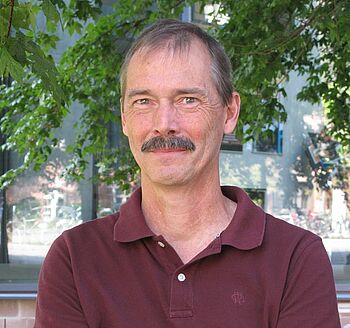Until recently, Dr. Garner carried out his research at Stanford University in California. Currently he is establishing his new laboratory at the DZNE in Berlin. "It wasn’t difficult to make the decision to move from California to Berlin. I’ve already known and collaborated with many colleagues here. The strong interaction between clinical scientists and basic researchers provides an excellent environment for my translational efforts. I’m excited to have the opportunity to help shape further developments”, says Professor Garner.
The DZNE in Berlin started its collaboration with the Charité officially in May 2013. The successful appointment of Craig Garner is a first important milestone in this collaboration – it was supported by the spokesman of the DZNE Berlin, Professor Dietmar Schmitz and the Dean of the Charité, Professor Annette Grüters-Kieslich. "This line of research will yield findings invaluable for the development of drug therapies to restore brain activity," comments Grüters-Kieslich in reference to the appointment of Professor Garner and the formation of his group in Berlin. “We are extremely pleased with this appointment”, says also Professor Pierluigi Nicotera, DZNE’s Scientific Director and Chairman of the Executive Board. “Professor Garner brings a wealth of experience in translating basic research into clinical use”, he adds.
Craig Garner studied Biochemistry at Purdue University in the USA and worked as postdoctoral fellow at the Friedrich Miescher Institute in Basel. In 1988 he became a group leader at the Center for Molecular Neurobiology in Hamburg (ZMNH) and continued his career at the University of Alabama in Birmingham. In 2002, he became Professor in the Department of Psychiatry at Stanford University in California and since 2003 he has co-directed the Down Syndrome Center there. Dr. Garner is a well-known expert in translational research, i.e. applying research findings to medical practice. He has received several prizes for his work, including the “Coulter Foundation Award for Translational Neuroscience“, the “Fidelity Foundation Award for Neurodegenerative Research“ and the “Stanford Neuro-Innovation Award for Translational Neuroscience“. Moreover, he has co-founded two small biotech companies: “Stealth Bioscience Inc.“, and “Balance Therapeutics Inc.“. The primary objective of the Stealth program is to develop new nanotechnologies that support intracellular recordings of neuronal cells using solid-state devices. The goal of the Balance program is to develop rational pharmacotherapies to normalize cognition in individuals with Down syndrome.

